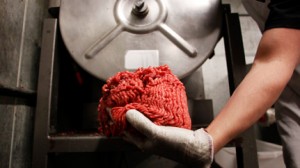Outbreaks are almost always the culmination of small missteps and mistakes, often reflected in the culture of a farm or facility, that are more easily determined retrospectively than proactively.
A somewhat baffling statement that raises more questions than answers was issued by the Canadian Food Inspection Agency as part of its investigation into the E. coli O157:H7 positives linked to the XL Foods facility in Alberta, which has triggered  hundreds of product recalls, north and south of the border.
hundreds of product recalls, north and south of the border.
I thought inspectors were at meat plants to oversee some stuff, but CFIA had to launch an in-depth review focused on the plant’s preventative control measures, food-safety policies and procedures, laboratory methodology, and equipment and quality systems, after being informed by the U.S. Food Safety Inspection Service that product from the Canadian plant tested positive for E. coli O157:H7.
“While the review did not identify one single factor that would lead to E. coli O157:H7 contamination, the combination of several deficiencies could have played a role. By themselves, each of these findings would not typically signal an immediate concern during the course of normal inspection activities.
“The CFIA has identified a number of issues with regards to the establishment’s preventative control plan. The detection of E. coli in slaughter facilities is not uncommon, and plants are expected to have adequate measures in place to monitor higher than normal detection rates and modify control measures accordingly. This trend analysis was not always conducted consistently at the facility.
“In addition, deviations were noted from the company’s documented E. coli O157:H7 control measures and sampling and testing procedures. The company was unable to demonstrate through its documentation that it regularly reviewed or made necessary updates to its control plan for the facility.
“XL Foods Inc. has developed a response plan. The CFIA has accepted the company’s plan and will monitor corrective actions to verify that they have been implemented effectively.”
Uh-huh.
